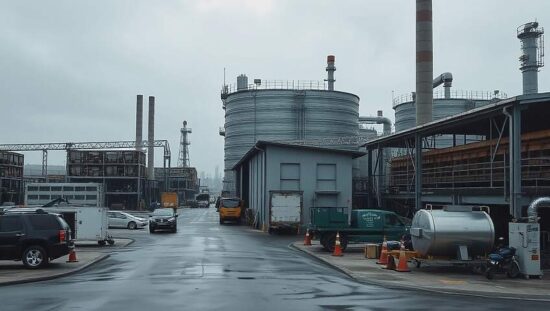The automotive supplier ZF Friedrichshafen is preparing for temporary layoffs at several of its sites, a move triggered by severe supply chain disruptions originating from the chip manufacturer Nexperia. The announcement, confirmed by a ZF spokesperson following a report in the Frankfurter Allgemeine Zeitung, highlights a rapidly escalating crisis within the European automotive sector and underscores the precariousness of reliance on foreign-owned critical infrastructure.
Nexperia, based in the Netherlands and now under Chinese ownership, produces vital semiconductors essential to car manufacturing. The company’s recent suspension of deliveries of precursor materials from Europe to its Chinese processing plant has plunged ZF and potentially other automotive giants into a state of emergency.
The situation is deeply intertwined with a contentious intervention by the Dutch government. In September, concerned by perceived mismanagement and a potential exodus of critical technology and production to China, the Dutch authorities invoked emergency powers to scrutinize Nexperia’s operations. This action, while intended to safeguard European technological sovereignty, appears to have precipitated an unintended consequence: retaliatory export restrictions imposed by China on semiconductors produced within the country and destined for Nexperia.
Industry analysts are now questioning whether the Dutch government’s intervention, while born from valid security concerns, has inadvertently exacerbated the problem. The resulting trade tensions and supply bottleneck demonstrate the vulnerability of European industries to geopolitical maneuvering and the dangers of allowing strategically important sectors to fall under foreign control.
The number of ZF employees potentially affected by the short-time work announcements remains unspecified, though the company describes it as currently “manageable”. However, the wider implications for the European automotive industry are significant, raising concerns about potential production slowdowns, increased costs and a renewed debate regarding the need for greater European chip manufacturing independence. The incident has reignited the debate surrounding strategic autonomy and the risks associated with relying on globally dispersed supply chains vulnerable to political and economic instability.





